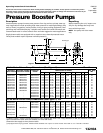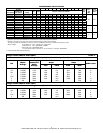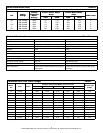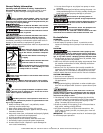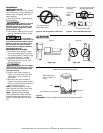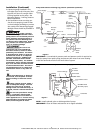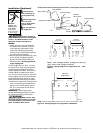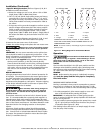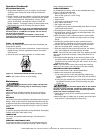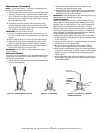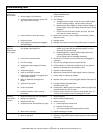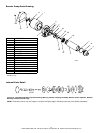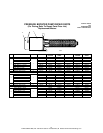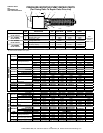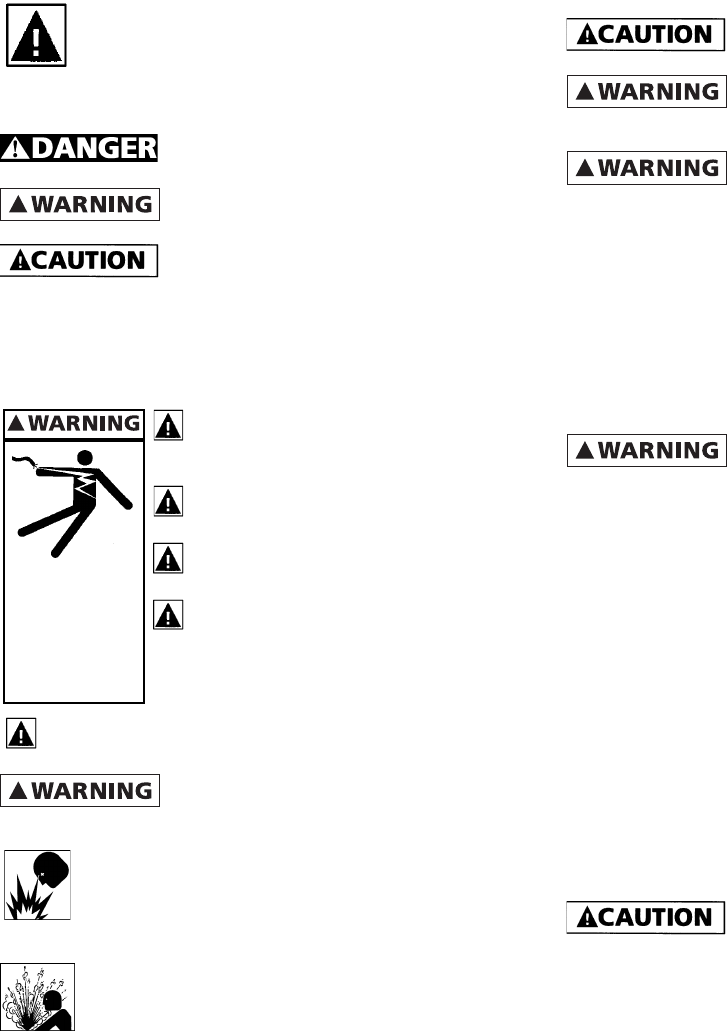
4
FLINT & WALLING, INC. • 95 North Oak St. • Kendallville, IN 46755 • www.flintandwalling.com
General Safety Information
Carefully read and follow all safety instructions in
this manual and on pump. Keep safety labels in good
condition. Replace missing or damaged safety labels.
This is a SAFETY ALERT SYMBOL. When you see this
symbol on the pump or in the manual, look for one of the
following signal words and be alert to the potential for per-
sonal injury or property damage.
Warns of hazards that WILL cause serious
personal injury, death or major property damage if ignored.
!
Warns of hazards that CAN cause serious
personal injury or death, if ignored.
Warns of hazards that MAY cause minor
personal injury, product or property damage if ignored.
IMPORTANT: Indicates factors concerned with operation,
installation, assembly or maintenance which could result in
damage to the machine or equipment if ignored.
NOTE: Indicates special instructions which are important but
are not related to hazards.
Wire motor for correct voltage. See
“Electrical” section and Motor Data Charts
C&D of this manual, and motor nameplate.
Ground motor before connecting to
power supply.
Meet United States National Electrical
Code and local codes for all wiring.
Do not handle a pump or pump motor
with wet hands or when standing on a wet
or damp surface or in water.
Hazardous volt-
age. Can shock,
burn or cause
death. Ground
pump before con-
necting to power
supply.
!
Follow wiring instructions in this manual when connect-
ing to power lines.
!
Always disconnect power source before
performing any work on or near the motor or its connected
load.
Do not use to pump flammable or explosive fluids
such as gasoline, fuel oil, kerosene, etc. Do not use in flam-
mable and/or explosive atmospheres.
Hazardous pressure! Install pressure relief valve in
discharge pipe. Release all pressure on system before work-
ing on any component.
1. Make workshop child proof - use padlocks, master
switches; remove starter keys.
2. Wear safety glasses when working with pumps.
3. Wear a face shield and proper apparel when pumping
hazardous chemicals.
4. Keep work area clean, uncluttered and properly lighted;
replace all unused tools and equipment.
5. Provide guarding around moving parts.
6. Keep visitors at a safe distance from the work area.
7. Periodically inspect pump and system components.
8. Protect electrical cord. Replace or repair damaged or
worn cords immediately.
9. Do not insert finger or any object into pump or motor
openings.
10. Secure the discharge line before starting the pump. An
unsecured discharge line will whip, possibly causing per-
sonal injury and/or property damage or puncture.
Do not touch an operating motor or
engine. They are designed to operate at high temperatures.
!
This product contains chemicals known to
the State of California to cause cancer and birth defects or
other reproductive harm.
!
Risk of Electric Shock. This pump has not
been investigated for use in swimming pool areas.
NOTE: Pumps with the “CSA-CUS” mark are tested to UL stan-
dard UL778 and certified to CSA standard C22.2 No. 108.
Pre-Installation
HANDLING
1. Use handle supplied to lift pump.
2. Avoid impact on pump or motor. In particular, avoid
impact on discharge end of pump or rear motor access
cover.
LOCATION
!
In any installation where property dam-
age and/or personal injury might result from an inoperative
or leaking pump due to power outages, discharge line block-
age, or any other reason, a backup system(s) should be used.
1. Locate pump as close to the fluid source as possible, keep-
ing the inlet pipe short as possible.
2. Place unit where the pump and piping are protected from
the weather and extremes of heat, humidity and below
freezing temperatures.
3. Mount unit in a dry location that is easily accessible for
inspection and maintenance. If a dry location is not avail-
able, mount it on a foundation well above the wet floor.
4. Allow ample clearance around unit for free air circulation.
SUCTION LIMITATIONS
1. Units are non self-priming.
2. Pressure booster pumps are not recommended for suction
lift applications.
PIPING
1. Use galvanized piping, rigid plastic or other suitable pipe
that will not collapse under suction or rupture due to pres-
sure.
If hose is used, make sure it is the rein-
forced industrial type that is rated higher than the shutoff
pressure of the system. Ordinary garden hose will collapse
and starve the pump of water.
2. The diameter of the inlet and discharge pipe should be
no smaller than the corresponding ports of the pump (See
Figure 1). Smaller pipe will reduce the capacity of the
pump. Increase pipe size on long runs.
3. Avoid air pockets in inlet piping or air will accumulate at
high points, making priming difficult.
4. Use pipe compound on all joints and connections. Use
Teflon tape or plastic joint stik, on plastic pipe. Draw all
pipe up tightly.
IMPORTANT: The entire system must be air and water tight
for efficient/proper operation.



